The general elections date of November is just around the corner. And as such all political parties big, medium and small are all gearing up on how best they could campaign and grab from the given pie of more than 1100 parliamentary seats to be decided in the Lower House, Upper House and across state and regional parliaments.
In this contest generally speaking three contending blocs can be identified. One is the Bamar political parties, dominated by the National League for Democracy (NLD); the military bloc political parties headed by Union Solidarity and Development Party (USDP), followed by National Unity Party NUP and their affiliated political parties; and the ethnic political parties (EPPs).
And outside this election contest, there is a 25 percent military or Tatmadaw representatives which don’t need to enter election in all level of parliaments as they are appointed by the commander-in-chief according to the provisions allotted by the military-drafted 2008 Constitution. But nevertheless, the military MPs are considered as part of the military bloc and did vote accordingly to support or reject any proposal that would benefit the USDP. The constitutional amendment held from February 25th to March 5, spearheaded by the NLD is the case in point, where all of NLD proposals were shot down by the military bloc, which tried to dilute the military’s veto power within the parliamentary structure.
Now let us look at how the NLD which achieved a landslide victory in 2015 general elections could fair in this upcoming 2020 November elections.
NLD
NLD was ushered into the government’s driver seat with the campaign slogan “time to change” in its election manifesto. And 2015 was the time when military-backed USDP government led by Thein Sein was about to finish his legislature period. The people’s motive were upbeat as they thought by voting for the NLD they would be able to get rid of the military, once and for all.
Aung San Suu Kyi was even telling the people not to look at the candidates but just look at the NLD party logo to vote, so that the change will come in a speedy manner, or something to that effect. To make the story short, the majority of rank and file of all ethnic states and regions voted for the NLD, except for the Shan and Arakan states, where political awareness and party politics awareness and sophistication were relatively high than the other ethnic states. The two mobilizing ethnic parties were Shan Nationalities League for Democracy (SNLD) and Arakan National Party (ANP), which came out second and first respectively in their homestead of Shan and Arakan states.
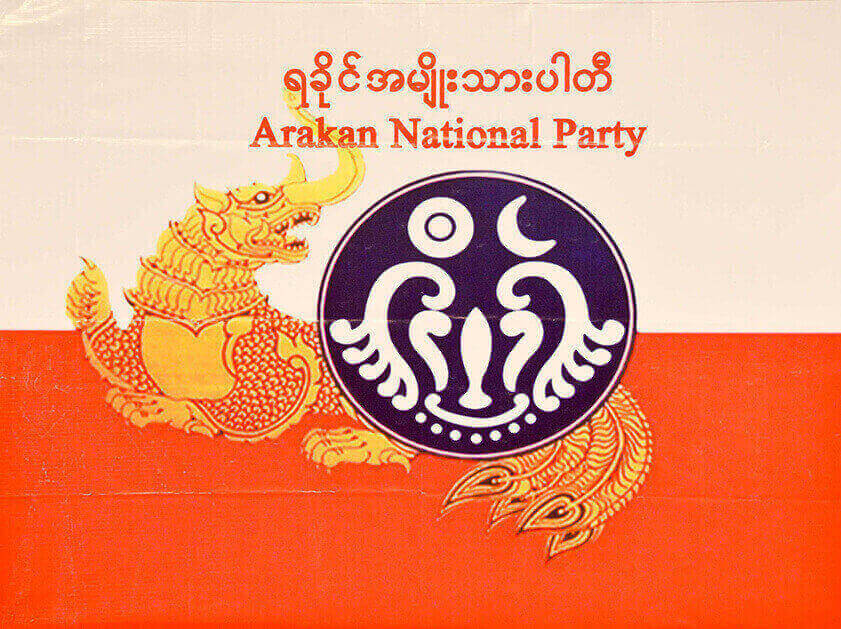
But in the aftermath of NLD’s victory and during the whole legislature period of five years, it opted for reconciliation with the military only and abandoned the EPPs. It conveniently has forgotten the alliance under Committee Representing the People’s Parliament (CRPP) when the EPPs and itself had resisted the military dictatorship with great hardship of long years prison terms and continuous harassment.
Two good examples that the NLD couldn’t care less regarding its former allies the EPPs could be seen in what took place during the formation of the sub-national ethnic state governments and employing the chief ministers. In the aftermath of NLD landslide victory in 2015 general elections, the most winning Arakan National Party wasn’t allowed to appoint its own chief minster and form government. In the same vein, the second winning Shan Nationalities League for Democracy in Shan State election (NLD came out third and USDP first) was totally ignored and instead the NLD appointed its own chief ministers in both states, together with its own state governments.
Even now the NLD leadership made it known that it is not entertaining coalition government forming, partly because it still hope to gather votes from ethnic states like it did during the last 2015 general elections. Little did the NLD realized that the votes that it received then has to do with tactical voting in order to get rid of the military, in the first place.
And in response to such uncooperative attitude and abandonment of the political values that the NLD and EPPs shared during the military dictatorship, the latter tried to form merger among the ethnic political parties and also closed deals like pre-electoral-coalition arrangement among themselves. They reasoned that by doing so, they would be able to stem the tide of the mainstream parties’ onslaught, particularly the NLD.
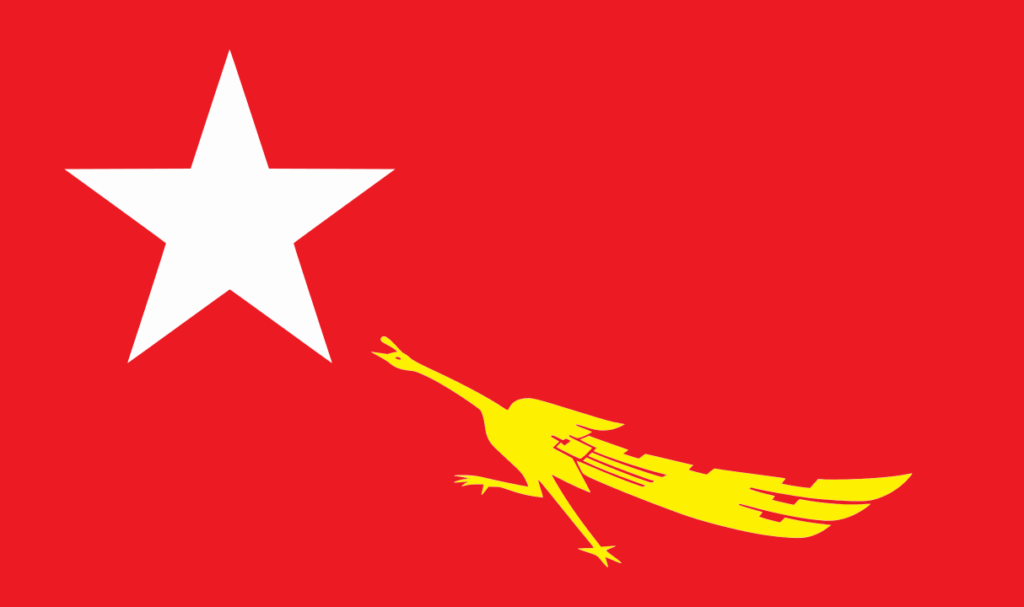
In 2010 elections the EPPs managed to gather 22 percent of the votes, while in 2015 they received just 11 percent. It is of course, the tactical-voting to cast in their lot on NLD also played an important role, including financial difficulties to fund the election campaign and the unpreparedness of the EPPs in general for various reasons.
USDP
Being backed by the military and have been in governing business for many decades albeit under the military dictatorial governments, from 1962 to 2015, the USDP election campaign funding could be imagined as robust if not over-flowing.
It has won a landslide 75 percent in 2010 general elections, where the NLD and established ethnic parties of Shan and Arakan didn’t participate, as all boycotted the 2008 Constitution and with it, the 2010 elections also. But in 2015 elections, USDP was able to gather only 10 percent seats nationwide.
Thus, the possibility for the USDP to win more votes is minimum, if not losing more seats, as the general opinion of the people is not supportive to the military-backed party.
Then there is National Unity Party (NUP), the military generation that belongs to the Gen Ne Win’s Burma Socialist Programme Party (BSPP) regime. While the Gen Than Shwe’s brainchild USDP stems from the forceful power take over from Ne Win’s generation clique, the two parties don’t work against each other. In fact, NUP is firmly within the military bloc, although the party was not successful both in 2010 and 2015 general elections.
From the NU 316 potential candidates for the Pyithu Hluttaw, 512 for the Amyotha Hluttaw and 528 for the State and Regional Hluttaws, in the 2010 general election, 12 candidates won seats for the Pyithu Hluttaw, 5 candidates for the Amyotha Hluttaw, and 46 candidates for the State and Regional Hluttaws. But in the 2015 general election, all 763 NUP candidates lost, except for one in Kachin State.
Mergers of EPPs
So far, Kayah State Democratic Party (KySDP), Karen National Development Party (KNDP), Kachin State People’s Party (KSPP), Chin National League for Democracy (CNLD), and Mon Unity Party (MUP) have merged to compete with the Bamar mainstream party NLD and military bloc party USDP.
Thus, the likelihood of tactical voting to prop up NLD by the ethnic population so that it could lead the change from quasi-civilian-military rule to full-fledged civilian government won’t be there anymore this time around, as NLD wasn’t able to deliver on any of its election promises laid out in its manifesto, aside from the earnest mobilization of the EPPs.
The EPPs seem to be on the right track employing merger strategy to consolidate their scattered parties into a single party in Karenni (Kayah), Karen, Kachin, Chin and Mon states. Besides, as earlier mentioned, they have agreed upon pre-electoral-coalition with other ethnic parties like refraining to run in the same constituencies, cooperation to have ethnic parties gather more seats and so on.
While the EPPs are handicapped financially, NLD mistreatment of the EPPs in general, indifference to the civil war situation in ethnic states, and particularly its openly siding with the Tatmadaw and heaping wrong-doings on the EAOs are factors that will work to the advantage of the EPPs. Most importantly, the NLD opted for reconciliation with the Tatmadaw only and abandoned the EPPs, which the informed local people can’t accept. And these politically aware people are those who head the EPPs.
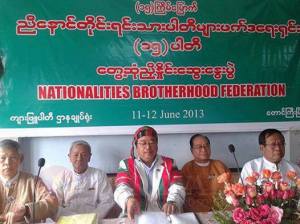
Apart from the enthusiastic EPPs performance gearing for the general elections, the two ethnic umbrella groups now also would run for elections in Bamar-dominated regions and ethnically mixed nationalities areas.
The Federal Unity Party (FUP) headed by Saw Than Myint originated from National Brotherhood Federation (NBF) with 22 members; and the United Nationalities Democracy Party (UNDP) led by David Hla Myint which comes from United Nationalities Alliance (UNA) with 15 members are determined to chip away NLD political monopoly through their vision of establishing an acceptable genuine federal union.

But whether such a move will be successful enough to dent the NLD standing in the elections is anybody’s guess. The FUP which tried in 2015 elections didn’t win even one seat and thus it is highly likely that the efforts would be fruitless, given the still popular stature of Aung San Suu Kyi and as an extension benefiting the NLD.
Kingmaker role
Given such scenarios, EPPs would likely achieve results from improving their parliamentary representatives count to become a Kingmaker in the aftermath of the general elections.
The likelihood that the EPPs combined votes could be some 20 percent or more is becoming a reality as the informed ethnic electorate and the local political parties will actively campaign in unison to vote for the homegrown parties.
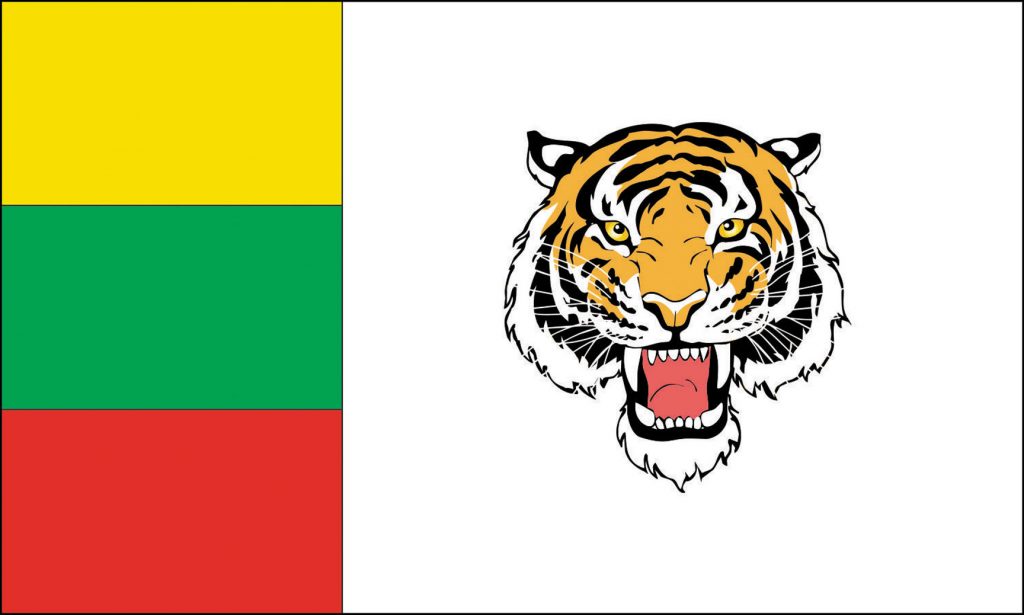
In Shan State the SNLD will likely be the party to come out either first or second, with the first place to be competed with the USDP, which has steadfastly cultivated its electorate base for decades with the help of Tatmadaw backed militias, Border Guard Forces and its huge military bases population that all tend to vote for military-backed party.
In Arakan State, the ethnic based parties will be the priority for the local people if they have the chance to vote because some 200,000 are at present on the run and won’t be home due to the fierce ongoing armed conflict between the Arakan Army (AA) and the Tatmadaw. Arakan State has a reputation of voting for the homegrown parties and people are extremely patriotic and nationalistic more than any other non-Bamar ethnic nationalities.
In Chin, Kachin, Karenni (Kayah), Karen and Mon, the homegrown parties have, more or less, bound together in form of merger and pre-electoral-coalition to contest the general elections. This time around, as there will be no tactical vote or blank check for NLD, the votes will flow into the homegrown parties, speculate the political pundits and keen observers.
The speculation is that the NLD will gather 40 percent votes, the EPPs 20 percent or more, the military bloc might as well bag 20 percent with its affiliated parties together. In such a stalemate situation, no party will be able to achieve absolute majority. Thus, coalition-building will become inevitable, one way or the other.
In such a scenario, there can be three or more coalition-building options. One is the grand-coalition between the military bloc and the NLD. The other is the coalition between the EPPs and the NLD. The thrid will be the coalition of the military bloc and the EPPs. Besides this a coalition of three blocs, the NLD, military bloc and EPPs is also thinkable, if a form of reconciliation government is to be formed. But highly unlikely given the animosity and party policy differences of all the stakeholders..
Coming back particularly to the role of EPPs and the impact they would produce, a Kingmaker role is highly likely, even if the NLD has time and again made known publicly that it is not interested in forming coalition, whatsoever.
In that sense, the EPPs might have to form coalition with the military bloc, even though many loathe that the woes of the country today, particularly the ethnic conflict is the handiwork of the military, since 1962. But in politics, there is no eternal friends or enemies, as the saying goes. And as such, if the stakes are right there can be political settlement.
In sum, the transformation of EPPs as Kingmaker role is very highly likely, only they have to achieve the threshold of 20 percent or more votes in the upcoming national elections.
The political arena is open for now and how it will play out will be revealed in the near future on the silver screen.





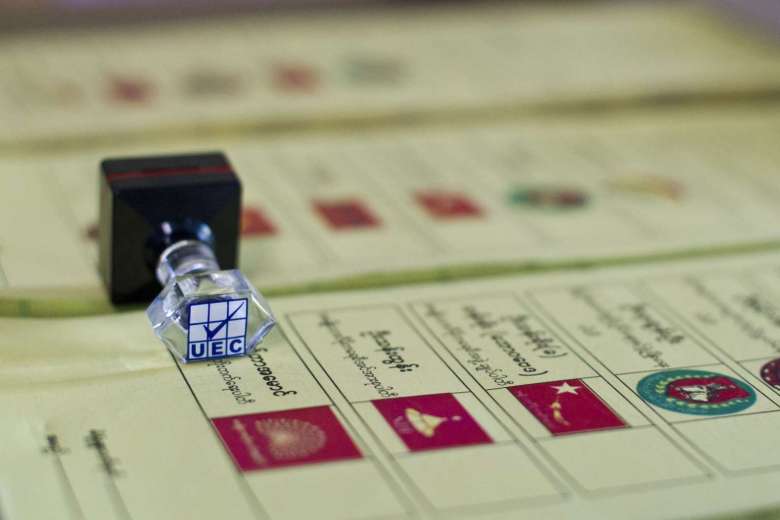
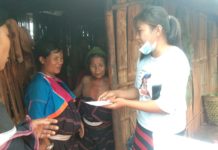
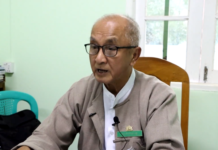
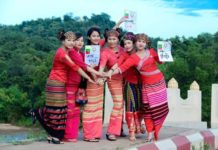
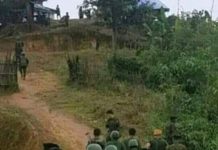
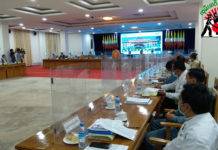






Leave a Comments